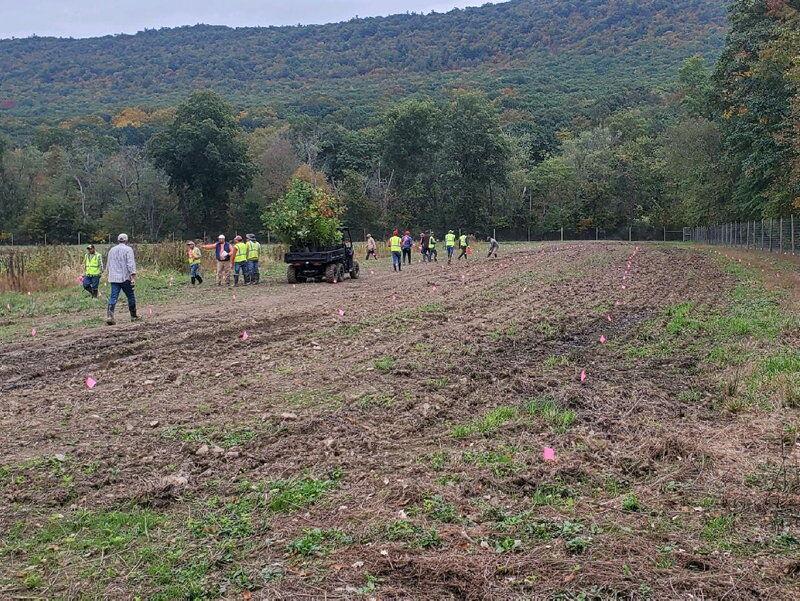Packer Creates Conservation Area During Building Project
December 27, 2021
December 27, 2021
Lancaster Farming
By Tom Venesky

Nicholas Meat is spending an estimated $50 million on a new waste-to-energy unit, and the company recently added $800,000 to the project to improve the environment.
The Loganton, Pennsylvania, building, which will take two years to complete, will allow the meat processor to reuse 90% of the wastewater generated by cattle processing at the existing plant. It will also generate green energy from biogas from anaerobic digestion to convert organic waste into an energy source.
A groundbreaking ceremony was held for the new facility in May.
During site preparation work for the new facility, an existing stormwater channel was replaced with a series of retention ponds. To compensate for the loss of the channel and for other site alterations, Nicholas Meat established a conservation area on a 12-acre parcel bordering Bald Eagle Creek outside of Mill Hall.
According to Brian Miller, director of sustainability for Nicholas Meat, the conservation area was a location that was farmed years ago but was marginal for agriculture due to wet conditions.
“We had some watercourse impacts on the sustainable resource facility site, and we wanted to compensate for that,” Miller said. “We asked our consultant to find the closest available site where we could really improve things from an environmental standpoint.”
The conservation area is privately owned but will be protected with a permanent conservation covenant. A half-acre wetland was created on the property, and approximately 2,500 native trees were planted.
Water-tolerant species such as swamp white oak, black willow and American sycamore were planted on the wet area, and upland species including aspen, hickory, red oak and cherry were planted on the higher, drier portions of the property. The new wetlands area was planted with a seed mix including sedges, dogwood, buttonbush and arrowwood. A fence was erected around the entire 12-acre parcel to exclude deer and other wildlife while the plantings become established. Miller said Nicholas Meat will monitor the site for five years, at which time the fence will be removed.